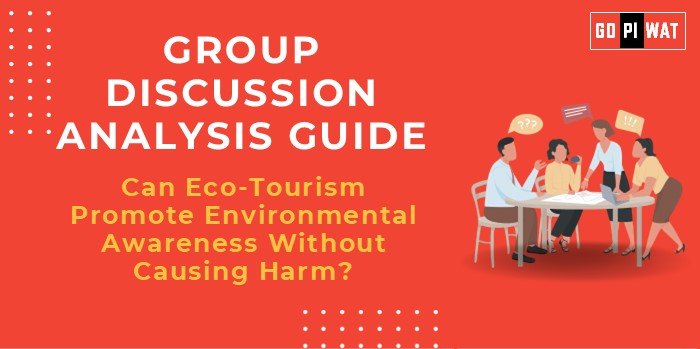🌿 Group Discussion Analysis Guide: Can Eco-Tourism Promote Environmental Awareness Without Causing Harm?
Introduction to the Topic
Opening Context: Eco-tourism has emerged as a solution to balance economic growth with environmental preservation. Globally, it represents a $181 billion industry (2022), growing annually by 14% due to rising environmental consciousness and the demand for sustainable travel.
Topic Background: First coined in the late 20th century, eco-tourism aims to foster environmental education while benefiting local communities. However, its rapid commercialization often poses risks to fragile ecosystems.
📊 Quick Facts and Key Statistics
- Eco-Tourism Market Size: $181 billion (2022) – Demonstrates the economic potential of eco-tourism.
- Growth Rate: 14% annually – Reflects increasing global focus on sustainability.
- Environmental Benefits: Contributes to conservation efforts in 60+ countries.
- Footprint Reduction: Low-impact accommodations use 30% less energy than traditional hotels.
- Case Example: Costa Rica attracts 2 million eco-tourists annually, earning 6% of its GDP from sustainable tourism.
🛠 Stakeholders and Their Roles
- Governments: Regulate sustainable practices and allocate protected areas.
- Tourists: Adopt responsible travel behaviors.
- Local Communities: Serve as stewards of natural resources and benefit economically.
- Environmental NGOs: Monitor and advise on sustainable practices.
- Private Enterprises: Innovate eco-friendly travel and accommodation solutions.
✔️ Achievements and Challenges
Achievements:
- Conservation Impact: Protected over 20 million hectares worldwide through eco-tourism revenue.
- Economic Growth: Generates sustainable livelihoods for indigenous communities.
- Educational Value: Raises awareness about conservation through immersive experiences.
- Case Study: Kenya’s Maasai Mara promotes wildlife conservation by integrating locals into the tourism economy.
Challenges:
- Over-Tourism: Increases waste and habitat disruption, especially in biodiverse areas.
- Greenwashing: Some companies falsely advertise sustainability credentials.
- Limited Accessibility: Many eco-tourism spots are financially or geographically inaccessible to average travelers.
🌍 Global Comparisons
Success Example: Costa Rica integrates eco-tourism into national policy, preserving 25% of its land as protected areas.
Challenge Example: Thailand faces coral reef damage due to unregulated tourism in marine reserves.
🗣 Structured Arguments for Discussion
- Supporting Stance: “Eco-tourism empowers communities economically while fostering environmental stewardship.”
- Opposing Stance: “The commercialization of eco-tourism often prioritizes profits over sustainability, leading to environmental degradation.”
- Balanced Perspective: “While eco-tourism can promote environmental awareness, effective policies are crucial to mitigate its negative impact.”
🔍 Effective Discussion Approaches
Opening Approaches:
- Data-driven Start: “Eco-tourism is a $181 billion industry growing at 14%, but is it truly sustainable?”
- Contrast: “While eco-tourism has protected vast areas, over-tourism has damaged ecosystems like Maya Bay in Thailand.”
- Case Study: “Costa Rica’s success highlights how policy integration can amplify eco-tourism’s benefits.”
Counter-Argument Handling:
- Cite global benchmarks like Costa Rica to counter pessimism.
- Acknowledge concerns and propose solutions, such as enforcing visitor limits.
💡 Strategic Analysis of Strengths and Weaknesses
- Strengths: Conservation funding, economic empowerment, educational impact.
- Weaknesses: Risk of over-tourism, authenticity concerns, limited scalability.
- Opportunities: AI for sustainable travel planning, partnerships with conservation NGOs.
- Threats: Climate change impacts, unethical practices.
🎓 Connecting with B-School Applications
- Real-World Applications: Link to projects in sustainable finance or tourism operations.
- Sample Interview Questions:
- “How can eco-tourism balance profitability with sustainability?”
- “What policies can ensure eco-tourism benefits local communities?”
- Insights for B-School Students: Focus on integrating sustainable tourism practices in operations or marketing strategies.


